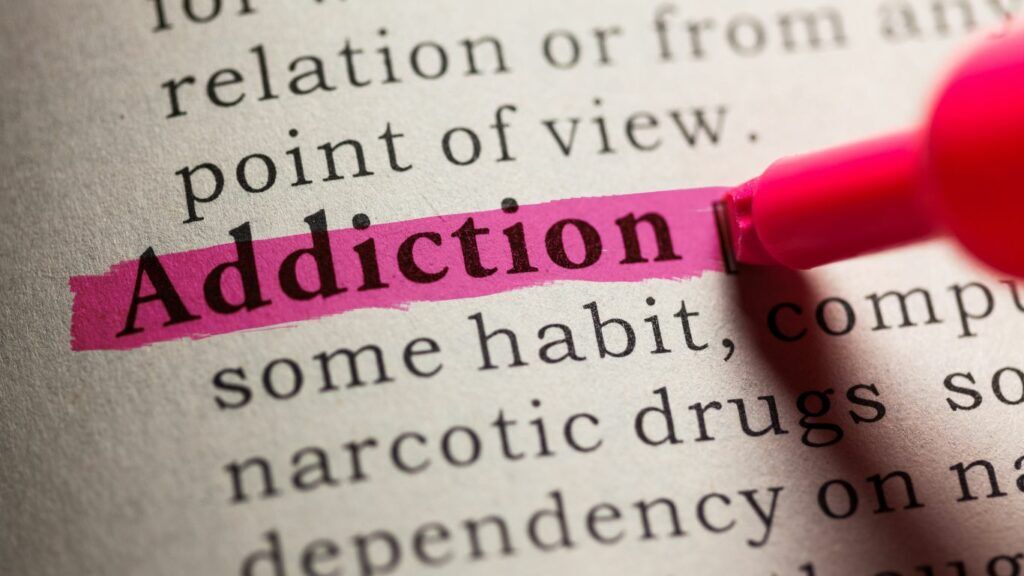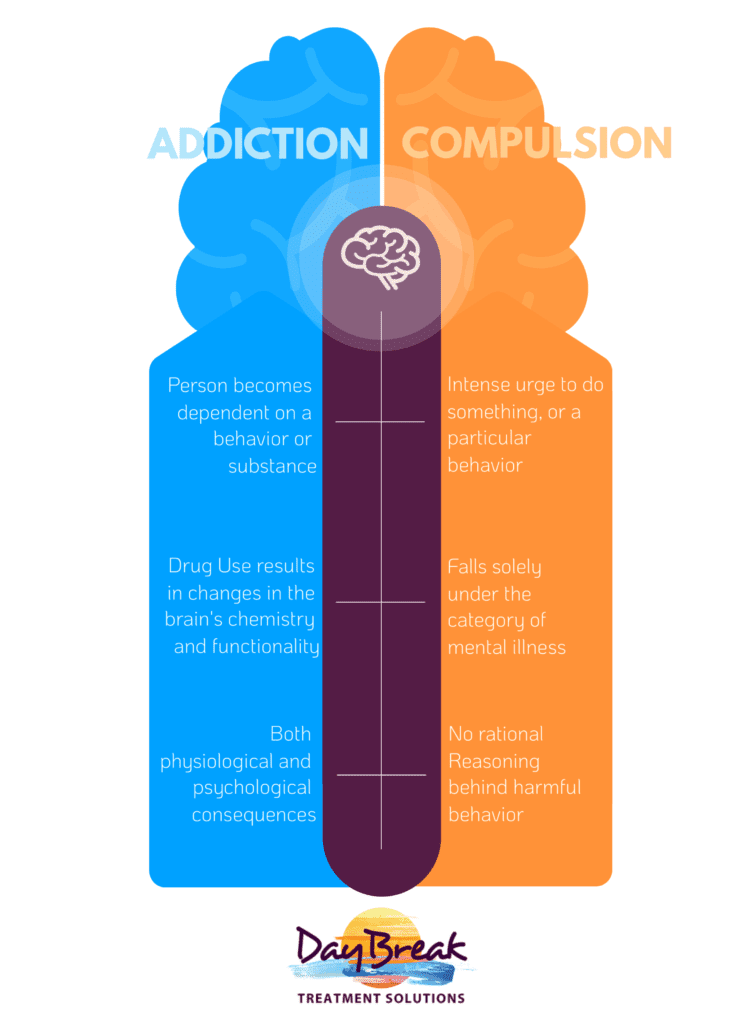Why Addiction is Considered a Disease and Not a Compulsion

There is still a substantial stigma surrounding alcohol and drug addiction. The biggest misconception being that drug addicts and alcoholics continue using because they choose to, or due to compulsive behavior. The truth however is that addiction is a chronic illness and requires professional, addiction treatments to be managed successfully.
The Difference Between Addiction and Compulsion
Addiction and compulsive behavior are not the same thing and should not be used interchangeably. In order to understand the meaning of these two terms, we will look at common features that drug and alcohol addiction share with compulsive behavior as well as their differences:
Addiction
- Broad term used to describe the process by which a person becomes dependent on a particular behavior or substance
- Drug use has resulted in changes in the brain’s functioning
- Has both physiological and psychological negative consequences
- The user continues to engage in the behavior seeking a feeling of pleasure
Compulsion
- Narrow term used to describe the intense urge to do something, which can lead to a certain behavior
- An intense urge to do something, which could be a drug or a behavior such as gambling or watching pornography
- Falls solely under the realm of mental illness (technically an anxiety disorder such as obsessive-compulsive disorder)
- Compulsive behavior has no rational reasoning behind the harmful behavior. Ultimately, they follow through with the behavior as a way to avoid mental distress or fear and engaging in the compulsion offers temporary relief.
The similarities between the two is that the feeling of being helpless in controlling those urges. A person could suffer from both addiction and compulsion. Simultaneous presence of mental illness and substance use disorder are called co occurring disorders and require dual diagnosis treatment and behavioral therapy like cognitive behavioral therapy to ensure successful recovery.
When Did Addiction Become Classified as a Disease?
The history of addiction includes medical professionals and scientists who had long suspected that symptoms of addiction stemmed from changes in the brain, but it took a long time for this idea to be professionally accepted. The American Medical Association (AMA) first classified alcoholism as a disease in 1956 and addiction followed in 1987. The American Society of Addiction Medicine (ASAM) says that like other chronic diseases, addiction involves cycles of relapse and remission. Further, addiction is characterized by certain features like other diseases. These include:
- Loss of control of behavior
- Inability to recognize the problems associated with this behavior change
- Inability to stop using substances or to stay away from addiction triggers and cravings
- Change in emotional response
The Behavioral Models of Addiction
Over the years, research has tried to uncover the drivers of drug and alcohol addiction and formulated theories to explain the cause. One theory is explained under the behavioral disease model of addiction. It says that addiction to drugs and alcohol unfolds over time, which was created as a result of external rewards. Some researchers feel that the primary driver of addiction is avoiding the intensely uncomfortable drug and alcohol withdrawal symptoms. However, this theory does not apply for more moderate or mild substance abuse addiction. Others have theorized that addiction is a medical phenomenon, meaning that addiction is caused by genetic factors and exposure to substance abuse.
How Daybreak Treatment Center Can Help
As a chronic disease, drug and alcohol addiction require medical treatment from a recovery center ideally to help manage the symptoms. At DayBreak Treatment Center, we can help you overcome any level of addiction through our various substance abuse treatment plans. Whether you require a medically assisted detox or need drug rehab, we can help you every step of the way. Our dual diagnosis treatment plans help to address co occurring disorders that are often present with substance abuse and are part of all our programs including inpatient treatment and outpatient treatment.
If you or someone you love is struggling with substance abuse and drug addiction, the time to get help is now. Please give us a call today at (844) 695-0083 and one of our addiction specialists can help guide you on the next steps.

